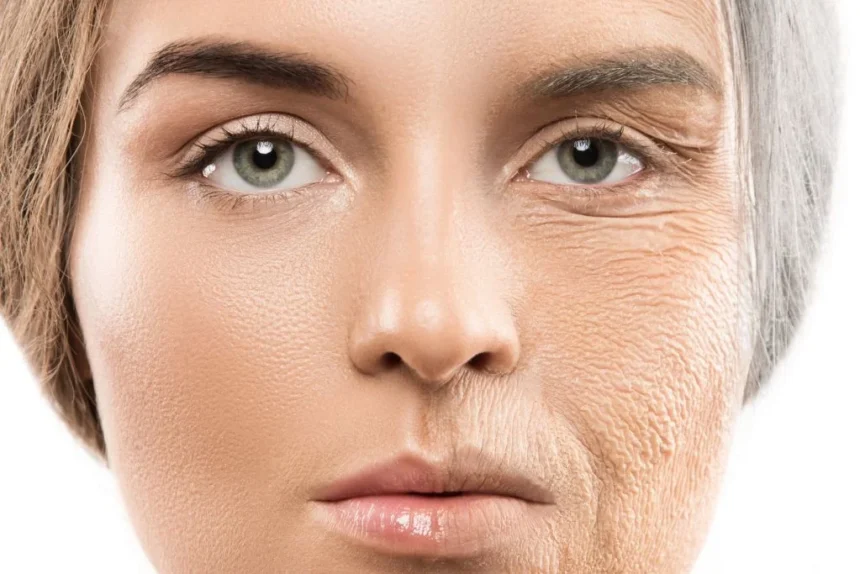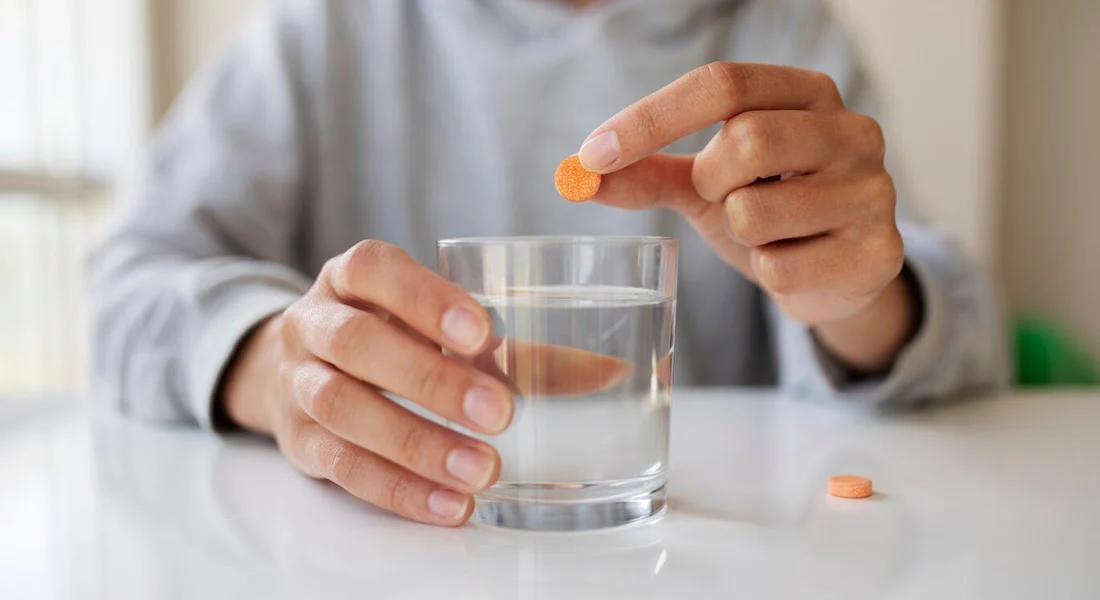Aging is a natural part of life, but healthy aging skin is something you can control with the right nutrients, routines, and habits. Many people notice fine lines, dullness, dark spots, and dryness as they get older. These changes are normal, but they do not mean your skin cannot stay glowing and smooth. When you understand what your skin really needs, healthy aging becomes easier and stress-free.
This simple guide explains the best nutrients for youthful skin, daily skincare routines to support aging, and the most common mistakes to avoid. If you want long-term results and healthy skin even after 40, 50, or 60, this article will help you step by step.
For more health guides and daily wellness tips, you can also visit our website healthguiders.com for regular updates.
What really happens to skin as you age?
As you grow older, your skin slowly loses collagen, elasticity, and moisture. Collagen keeps the skin firm and bouncy, but after the age of 25, your body makes less of it. Elastin, the protein responsible for skin flexibility, also reduces. The top layer of skin becomes thinner, making fine lines easier to see.
Sun exposure, pollution, stress, poor diet, and lack of sleep speed up these changes. That is why two people of the same age can look very different. Healthy aging skin is not about eliminating aging but slowing down and improving the process.
Essential nutrients for healthy aging skin
Healthy skin begins inside the body. What you eat every day directly affects how your skin ages. When your diet is rich in the right nutrients, your skin stays strong, hydrated, and bright.
Vitamin C for collagen and glow
Vitamin C is one of the most important nutrients for anti-aging. It helps your body make collagen and protects skin cells from damage. Eating fruits and vegetables rich in vitamin C can reduce dullness and improve skin texture.
Good sources include oranges, lemons, strawberries, kiwi, guava, broccoli, and tomatoes. Vitamin C also brightens the skin and reduces dark spots caused by sun exposure.
Vitamin E for protection and softness
Vitamin E acts like a shield for your skin. It protects the skin from free radical damage and keeps it soft. Nuts, seeds, spinach, and avocados are great sources of vitamin E. When combined with vitamin C, it boosts your skin’s natural protection.
Omega-3 fatty acids for firmness and hydration
Omega-3 fats keep your skin barrier strong. When the barrier is healthy, your skin stays hydrated and protected from dryness. These fats also reduce inflammation and redness.
Foods like walnuts, chia seeds, flaxseeds, and fatty fish such as salmon are rich in omega-3s. Adding these to your diet can make your skin feel smoother and more nourished.
Protein for repair and strength
Skin is made of proteins like collagen, elastin, and keratin. If you do not eat enough protein, your body cannot repair damaged skin cells. This leads to sagging and slow healing.
Good protein options include lentils, eggs, yogurt, tofu, beans, and lean meat. Eating enough protein every day keeps your skin firm and strong.
Antioxidants for slow aging
Antioxidants fight oxidative stress, which is a major cause of early wrinkles. They help neutralize harmful molecules that damage skin cells.
Berries, green tea, leafy greens, carrots, and turmeric are rich in antioxidants. Eating a variety of colorful plant foods is an easy way to boost your antioxidant intake every day.
Daily routine for healthy aging skin
Aging skin needs a simple routine that protects, nourishes, and hydrates. Complicated routines are hard to follow and often unnecessary. A gentle and consistent routine will give better results.
Morning skincare routine
Start with a mild cleanser to remove oil and dirt without stripping your skin. After cleansing, use a hydrating serum with ingredients like hyaluronic acid or vitamin C. These help brighten and plump your skin.
The most important step in the morning is sunscreen. Sun damage is the number one cause of early wrinkles. Using a broad-spectrum sunscreen protects your skin from harmful UV rays and prevents dark spots, fine lines, and uneven tone.
Evening skincare routine
At night, your skin repairs itself. This is the best time to use nourishing ingredients. Begin with a cleanser to remove makeup, sunscreen, and pollution. After cleansing, you can use a retinol serum if your skin can tolerate it. Retinol boosts collagen production and improves fine lines.
If you are new to retinol, start slowly to avoid irritation. After serum, apply a good moisturizer with ingredients like ceramides or peptides. This helps lock in moisture and support skin repair.
Weekly habits that support aging skin
Gentle exfoliation once or twice a week can remove dead skin cells and improve skin brightness. Avoid harsh scrubs because they damage the skin barrier. Opt for mild chemical exfoliants like lactic acid or mandelic acid.
Face massages also help improve blood circulation and relax tense facial muscles. You can use facial oils or a simple moisturizer to gently massage your face in upward strokes.
Common mistakes that make aging skin worse
Many people unknowingly damage their skin with habits that accelerate aging. When you avoid these mistakes, your skin stays healthier for many years.
Not using sunscreen daily
Skipping sunscreen is the biggest mistake. Even if you are indoors, UV rays can enter through windows and cause aging. Daily sunscreen use can slow visible aging by almost 50 percent.
Over-exfoliating your skin
Exfoliating too often weakens the skin barrier and causes redness, dryness, and sensitivity. Many people think exfoliating more will make skin glow faster, but it usually does the opposite.
Using too many products at once
Your skin does not need ten different products. Layering too many active ingredients confuses the skin and leads to irritation. A simple routine gives better results and protects your skin barrier.
Sleeping with makeup on
Makeup blocks your pores and prevents your skin from repairing itself at night. This leads to breakouts, dullness, and early wrinkles. Always remove makeup before sleeping.
Poor lifestyle habits
Stress, smoking, too much alcohol, and lack of sleep all damage the skin from inside. When you manage stress, stay hydrated, move your body, and sleep well, your skin naturally starts looking healthy.
Lifestyle tips that make aging skin healthier
Healthy aging is not only about skincare products. Your daily habits play a very important role.
Stay hydrated by drinking enough water every day. Try to sleep at least seven hours each night. Add more colorful fruits and vegetables to your meals. Reduce sugar because it weakens collagen. Move your body daily to increase blood circulation and oxygen flow to your skin.
Meditation, yoga, and deep breathing can reduce stress, which helps control wrinkles caused by tension.
When should you start caring for aging skin?
You do not need to wait until you see wrinkles. Healthy aging starts in your 20s and 30s when collagen production naturally slows down. The earlier you follow good habits, the better your skin will age later.
However, it is never too late to start. Even if you are above 50, simple changes can still improve your skin’s texture, hydration, and glow.
Conclusion: Healthy aging skin is about consistency
Healthy aging skin is not about looking younger forever. It is about taking small steps every day that help your skin stay strong, bright, and healthy. A balanced diet, simple routines, and the right habits can make a big difference. Consistency is the key to long-lasting results.
For more helpful guides on skin, fitness and overall wellness, visit healthguiders.com regularly and stay updated with easy health content.
FAQs about healthy aging skin
What is the best vitamin for anti-aging skin?
Vitamin C is one of the best vitamins because it helps with collagen, brightness, and protection from sun damage.
How can I slow down skin aging naturally?
Eating healthy food, using sunscreen daily, staying hydrated, and following a simple skincare routine can slow down aging naturally.
At what age should I start using anti-aging products?
You can begin in your mid-20s or early 30s, but even if you start later, you will still see benefits.
What foods make skin look younger?
Foods rich in antioxidants, vitamin C, vitamin E, protein, and omega-3 fats help keep skin youthful. These include berries, citrus fruits, nuts, seeds, leafy greens, yogurt, and fish.
Why does my skin look dull as I age?
Dullness happens due to slow cell turnover, sun damage, dehydration, and reduced collagen. Gentle exfoliation and hydration can help.




